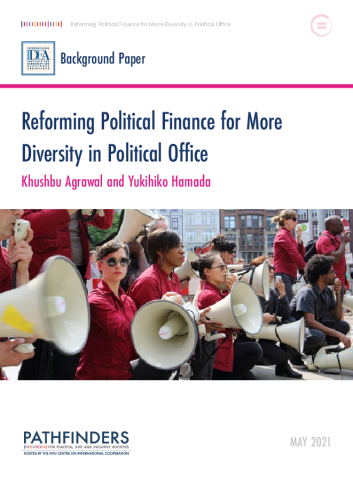Reforming Political Finance for More Diversity in Political Office

Systemic and legal barriers to equal political participation persist at all levels and take different forms, including unfavorable electoral systems, lack of support from political parties, socio-economic, and cultural. Women, people with disabilities, indigenous people, LGBT+ individuals, and young people face all of these barriers, particularly insufficient access to political finance.

Demonstration/Parade/Performance/Public Hearing. Hamburg, Germany. Photo credit: Flickr user Rasande Tysker. (CC BY-NC 2.0)
Campaigning has become an expensive affair, and political aspirants and candidates from these groups find it challenging to secure the substantial sums of money usually required to run a campaign and win an election. In order to address these barriers and level the playing field, several targeted political finance measures have been designed and adopted by some governments, political parties, and private initiatives, although they vary in their target and effectiveness. Governments in many countries are using public funding to encourage political parties to nominate candidates from traditionally underrepresented groups, and get them elected by tying the provision of public funding to enforcement of electoral quotas where they exist. Public funding gives political parties financial incentives to meet the quota target, or penalizes them if they fail to meet the agreed proportion of candidates from underrepresented groups.
This paper explores the challenges facing different groups in accessing political finance, various measures that have been adopted in selected countries around the world, the challenges of implementing these measures, and the prerequisites for their effective implementation. It also provides a set of recommendations to ensure that the quest for more accessible political finance includes consideration of other important aspects that are indispensable to more inclusive and representative politics.
Related Resources
